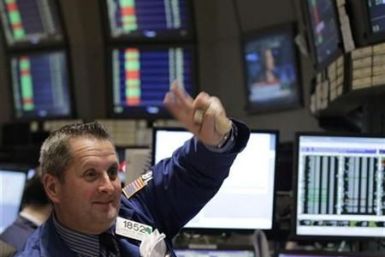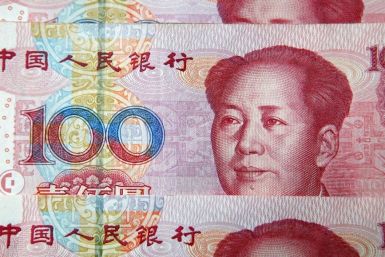We believe that the worst is now over for emerging market equities. Moreover, we believe that the resignation of Hosni Mubarak as Egypt’s President will not only
ease tensions in the region but will also restore confidence towards investing in emerging markets again
China's Huawei is resisting calls to divest recently acquired U.S. server technology firm 3Leaf, opting instead to wait for a decision from the White House before taking action.
Anglo-Australian miner BHP Billiton once offered to trade intelligence with Washington on China, its most important market, an Australian newspaper said on Tuesday, citing leaked U.S. cables obtained from WikiLeaks.
U.S. stocks ended narrowly mixed as investors appeared to be underwhelmed by President Obama’s budget proposal, while unrest in the Middle East has spread to Iran and even Bahrain.
NEW YORK, Feb 14 - As more Chinese companies trade on U.S. stock exchanges, investors are increasingly suing them for securities fraud in U.S. courts -- and slamming into a host of legal and bureaucratic barriers.
U.S. stock index futures edged lower on Monday after Wall Street posted two straight weeks of gains that drove indexes to new multi-year highs and investors worried the market is overextended.
Gold rose above $1,360 an ounce on Monday as the dollar's retreat from highs versus the euro took some pressure off prices, with a second consecutive weekly price rise underpinning investors' confidence in the metal.
France played down hopes on Monday of clinching a deal at a meeting of G20 finance ministers this week that would push forward efforts to deal with global economic imbalances, although it said that remained its goal.
Chinese telecom equipment maker ZTE is gunning to be among the world's top three telecom equipment makers in the coming years, a wireless executive told Reuters on Monday.
MGM Resorts International , which sources said last week plans to publicly list shares in its Macau operations at the end of February, reported a smaller loss in the fourth quarter. The casino operator posted a net loss of $139.2 million, or 29 cents a share, compared with a net loss of $433.9 million, or 98 cents a share, last year.
U.S. stocks opened modestly lower on Monday as investors awaited the release of President Obama's budget.
China is the top economy in the world, the majority of Americans believe, according to the latest Gallup Poll.
U.S. stocks fell on Monday after posting two straight weeks of gains that drove indexes to new multi-year, although a recent pattern of buying on market declines was likely to continue.
Global stock exchanges have apparently entered into a new round of consolidation that promises to radically alter trading activities for millions of investors.
The global airline industry will also likely see 800-million more travelers by 2014, and more than a quarter of them will come from China.
U.S. stocks were set to dip on Monday after posting two straight weeks of gains that drove indexes to new multi-year highs and some investors worried the market was overextended.
Japan's economy shrank slightly in the final quarter of 2010 but analysts expect a recovery this year as stronger exports to China and other parts of fast-growing Asia offset persistently weak domestic demand.
China's trade surplus fell to its lowest in nine months in January after imports surged, supporting the government's case ahead of a G20 meeting that it is doing enough to spur domestic demand without speeding up currency appreciation.
Futures on major U.S. stock indices point to a mixed opening on Monday, after indices recorded a second straight week of gains on Friday.
China’s trade surplus fell 53.5 percent to $6.45 billion in January, as both exports and imports increased sharply ahead of the Lunar New Year holidays in the country, the General Administration of Customs said on Monday.
China's trade surplus fell to its lowest in nine months in January after imports surged, supporting the government's case ahead of a G20 meeting that it is doing enough to spur domestic demand without speeding up currency appreciation.
China's trade surplus fell to its lowest in nine months in January after imports surged, supporting the government's case ahead of a G20 meeting that it is doing enough to spur domestic demand without speeding up currency appreciation.


























